
2022 Joint Research Program
CEMLA Workshop on Labor Markets
The Center for Latin American Monetary Studies (CEMLA) organized the CEMLA Workshop on Labor Markets on August 11 and 12, 2022, within the 2022 Joint Research Program. This year's edition was carried out digitally and gathered the authors of five papers (in progress) on labor markets for the contexts of some Latin American and European countries. The authors are affiliated to the central banks of Bolivia, Costa Rica, Peru, Spain, and Uruguay.
The Workshop presentations covered the following topics: i) an analysis of labor market transitions during the COVID-19 pandemic in Bolivia; ii) an examination of the COVID-19 shock reallocation effects in Costa Rica with an emphasis on unobserved worker heterogeneity; iii) the characterization of multiple-job workers in Peru and the determinants of its decision to have a second job; iv) the reallocation dynamics across sectors in three big Euro Area countries—namely, Spain, Italy, and France—induced by the COVID-19 pandemic; and v) the estimation of the natural rate of unemployment and the construction of a labor market conditions indicator for Uruguay.
There were two invited presentations given by this year’s Academic Advisors: i) Effects of the COVID-19 pandemic on the labor market outcomes of women with children in Mexico, presented by Laura Juárez, Assistant Professor in the Center for Economic Studies (CEE) at El Colegio de México, and ii) Informal labor markets in times of the pandemic: Evidence for Latin America and policy options by Carlos Urrutia, Professor of Economics and Researcher at the Center for Economic Research (CIE) at ITAM.

2022 Joint Research Program
CEMLA Workshop on Labor Markets
Call for PROPOSALS
August 11 - 12, 2022 – Mexico City (digital)
Automation, a form of technology-enabled disruption, consists of workers being increasingly replaced by technology; it implies that existing business models are being supplanted by new models, often based on technology, that bring more efficiency to the production, sale and/or distribution of goods and services.
In the past decade, automation developed at an overwhelming speed. The technology adoption process was drastically accelerated by the unexpected COVID-19 shock, and has been more pronounced in labor-intensive sectors characterized by predictable physical jobs and low-skilled workers, such as agricultural field workers, maintenance workers, among others.
Covid-19 disruptions caused structural changes in labor markets: transitions to informality or inactivity, job ladders destruction, work hours declined, workers were temporarily laid off, unemployment rose, and workers reallocated across sectors. In addition, a mix of economic policies was adopted to cushion the effects of the crisis, such as unemployment insurance, direct transfers, tax waivers or delays.
More recently, labor market conditions have improved markedly in most countries, particularly in the U.S., which most analysts consider to be quite tight. These changes make gauging the labor market dynamics more difficult. As some central banks have an employment target and all closely follow the evolution of economic activity, monitoring the labor market is key. Considering the aforementioned, the 2022 Joint Research Program focuses on the labor market.
Guidelines
Proposals should include: the rationale for the research, a basic literature review, possible methodologies, and the main testable hypotheses.
Two invited advisors will be available to guide the research projects. To foster inter-institutional collaboration, take advantage of the different strengths of the central banks, and generate knowledge transfer among researchers, co-authored research projects are welcome between advisors and participants as a result of the Joint Research Program.
To increase the visibility of the papers and facilitate the communication of the knowledge creation that is the objective of the Joint Research Program, the final manuscripts shall be submitted for consideration to a Special Issue of the Latin American Journal of Central Banking (LAJCB). The latter will provide its infrastructure to carry out the editorial process.
Invited Advisors
Special Issue Award
An award will be offered to the author(s) of the best papers of the Special Issue of the LAJCB, which will receive a compensation of 2,000 USD and 1,000 USD for the first- and second-best paper, respectively. All other included papers in the Special Issue will receive a compensation of 250 USD each.
Submission
Central bank researchers from CEMLA's Associate or Collaborating Members interested in participating should send their research proposals or research projects already underway in a Word or PDF file to the e-mail address JointResearch@cemla.org, no later than June 3, 2022.
Important Dates
June 3, 2022. Submission deadline
June 8, 2022. Notification of acceptance
July 14 - 15, 2022. Academic advisory meetings
August 11 - 12, 2022. CEMLA Workshop on Labor Markets
December 15, 2022. Deadline for final manuscript submissions to the LAJCB
Scientific Committee
Laura Juárez, El Colegio de México
Nelson R. Ramírez-Rondán, CEMLA
Benjamín Tello, CEMLA
Carlos Urrutia, ITAM
Organizing Committee
Nelson R. Ramírez-Rondán, CEMLA
Benjamín Tello, CEMLA

2022 Joint Research Program
CEMLA Workshop on Labor Markets

Laura Juárez
Laura Juárez is an Assistant Professor in the Center for Economic Studies (CEE) at El Colegio de México. Her research examines the effects of non-contributory programs for the elderly on household decisions, as well as various aspects of the Mexican labor market, among other topics. She has published in international academic journals such as the Journal of Public Economics and the World Bank Economic Review. She has worked as a researcher at the Center for Economic Research at ITAM (2006-2012) and at the Directorate General of Economic Research of Banco de México (2013 - April 2017). She holds a Ph.D. and an M.S. in Economics from the University of Texas at Austin and an undergraduate degree in Economics from ITAM.

Carlos Urrutia
Carlos Urrutia is a Professor of Economics and Researcher at the Center for Economic Research (CIE) at ITAM. His areas of interest are within the fields of Macroeconomics and International Economics and cover topics such as income differences across countries, income distribution, intergenerational mobility, social security, business cycles in emerging economies, and financial and labor market frictions. His publications appear in several academic journals, namely, the Review of Economic Dynamics, Journal of International Economics, Journal of Development Economics, and American Economic Review. Previously, he has been a Visiting Scholar at CEMLA and Banco de México, a Research Fellow at the Bank for International Settlements, a Senior Economist at the International Monetary Fund, a Visiting Associate Professor for the Department of Economics at Georgetown University, and an Assistant Professor at Universidad Carlos III de Madrid. He holds a Ph.D. in Economics from the University of Minnesota.

